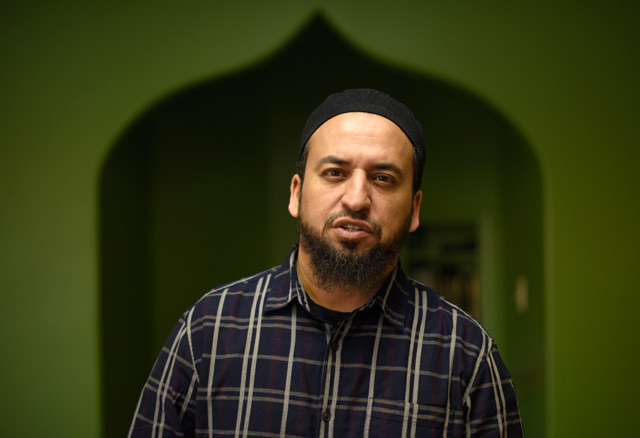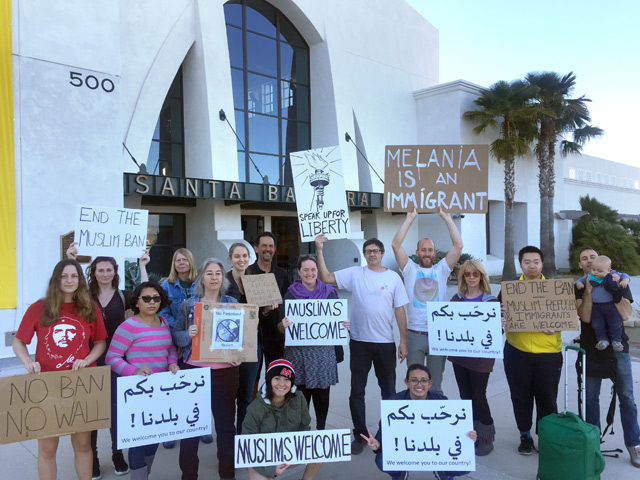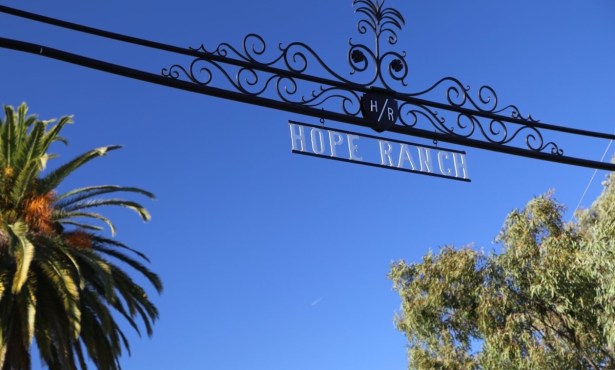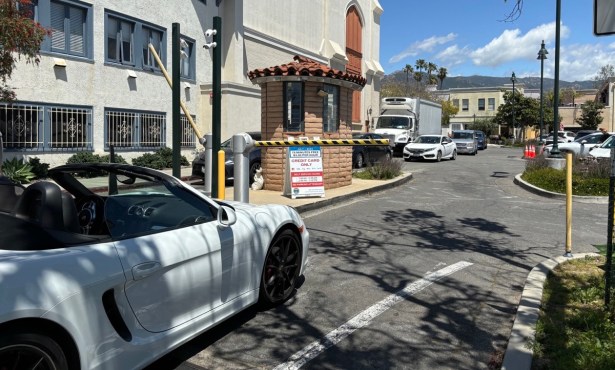Travel Ban Snares Santa Barbara
International UCSB Students Stuck in Iran; Syrian Couple Separated

Despite President Donald Trump’s assurances over Twitter on Saturday that only 109 people were detained or denied entry into the United States as a result of his travel ban, Customs and Border Protection officials confirmed Tuesday that in fact 721 people have so far been barred from entering the country. UC Santa Barbara graduate student Navid Yousefian is among them.
Yousefian, a political science PhD student born and raised in Iran — one of the seven Muslim-majority countries named in Trump’s executive order that prohibits their citizens from entering the U.S. for the next 90 days — had traveled to Tehran last week to visit family. When he tried returning to Santa Barbara, he was stopped and ordered back to Iran.
The UC system has 698 students enrolled from nations named in the executive order, 40 of whom attend UCSB. In an open letter, UCSB Chancellor Henry Yang stated that he and the campus’s Office of International Students and Scholars “stand ready to help and support any of our community members affected by this executive order.”
Another PhD student contacted Congressmember Salud Carbajal’s office on behalf of his girlfriend, also a UCSB student. She had recently returned to Iran and was waiting for her visa petition to be processed. It was approved Friday morning, just hours before Trump signed the order, but when she went to the U.S. embassy in Tehran to pick it up, officials there refused to release it.
Both students now face an uncertain future. Even if Yousefian is allowed to return to Santa Barbara, he said he’s not sure he’ll remain in America, given what he sees as President Trump’s increasing isolationism. “I think it’s going to get worse and worse,” he said in a televised interview. But for at least one Santa Barbara resident, a native of war-ravaged Syria, whose citizens are now banned indefinitely from entering the U.S., the road ahead is clear: He’ll never go back, even though that means sacrificing a marriage.
The young man wished to remain anonymous despite possessing a green card and being in the country legally. “My lawyer told me to keep my head down,” he said. After working full-time for three years in the Santa Barbara service industry, he planned to visit his village near Homs, Syria, marry his fiancée, and return together. “There’s no point in even thinking about it now,” he said. “I’ve had to put it out of my mind.”
The Santa Barbara Independent spoke this week with four other Syrian citizens living in Santa Barbara. All of them possess legal status, but they also asked to remain anonymous, hoping to not attract the attention of federal authorities. Though all are Syrian Christians, a religious group President Trump said in an interview might be given special exemption, they nevertheless expressed shock and despair.
“People have no idea what it’s like to live like this,” said one man.
Because of the abrupt issuing of the executive order and its broad language, confusion still reigns over who is and isn’t permitted to enter the United States. Lawyers across the country are struggling to reach clients being questioned at U.S. ports of entry while customs agents are deciding on entries of green-card holders on a case-by-case basis. Governments, including ours, are giving conflicting instructions on allowances granted to people with dual nationalities.

Santa Barbara immigration attorney Kraig Rice is advising his clients to remain in the U.S. at all costs, given how many unanswered questions remain. “No one has the full story is the bottom line,” he said. Rice cited an incident on Tuesday where an Icelandic tae kwon do champion of Iranian descent was barred from competing in a Las Vegas tournament. Meisam Rafiei had already boarded his plane in Keflavík when a member of the cabin crew informed him that he would not be allowed to fly to the U.S. “It’s very surreal,” said Rice. “When I hear stories like that, it makes me very sad. This is not the America I grew up in and know.”
In Santa Barbara County, 865 legal residents are from countries on the travel ban: 523 from Iran, 264 from Syria, and 78 from Iraq, Libya, Sudan, Somalia, and Yemen, according to the 2015 American Community Survey. A planned visit to Santa Barbara next week by Edna Adan Ismail, the former foreign minister of Somaliland Republic and a humanitarian superstar, might no longer be possible, said organizers with Direct Relief International.
Trump’s travel ban is already reverberating in Santa Barbara’s business world, as well. Gordon Morrell, executive vice president of Yardi Systems, said the multinational tech firm employs two Iranian-born Canadian citizens who live in Toronto. They are due to fly into Santa Barbara next week, “but after reading about the Somali-born Canadian citizens pulled off a flight on Monday,” said Morrell, “we are not sure it is safe for them to travel here.”
For Morrell, Trump’s supposed pro-business agenda doesn’t jibe with his order. “We’ve been living in a global society, but now it seems we are going to be pulled back within our own borders,” he said. “I don’t see how this strategy enhances business growth.” Yardi, Morrell said, was started by an immigrant who arrived in the U.S. 35 years ago with a single suitcase. “Today, the company supports 650 families in the Santa Barbara and Ventura areas, and 5,200 families worldwide.”
Ken Oplinger, CEO of the Santa Barbara Chamber of Commerce, predicted the most immediate effects to Santa Barbara’s business sector will be a decline in tourism. “We know there are efforts in certain parts of the world (I’ve already seen several in Canada) calling for boycotting travel to the U.S.,” he said in an email. “A drop in those travelers will affect hotels, restaurants, retail, and other visitor-oriented businesses.”
Visit Santa Barbara’s Kathy Janega-Dykes was more cautiously optimistic. Travel tends to be influenced more by economic realities than political rhetoric, she said. “For example, any effects would likely have more to do with the impact of President Trump’s policies on the strength of the dollar, cost of plane tickets, and price of gas.” Santa Barbara is in good shape because Governor Jerry Brown has created a supportive climate for international travel to California, she said. “Visit Santa Barbara shares U.S. Travel Association’s opinion that increased security and travel can coexist.”
On Saturday at the Santa Barbara Airport, about 20 like-minded people gathered in an impromptu protest put together by Jack Ucciferri and Ethan Turpin. The travel ban is “discrimination completely antithetical to American values,” said Alex Wyndham. A group who had attended the Women’s March in Los Angeles also lent their support, as did others coming and going from the airport. “We got one ‘Disgusting!’” said Turpin of passengers’ reaction to their presence, “and about 10 ‘Thank yous.’”



